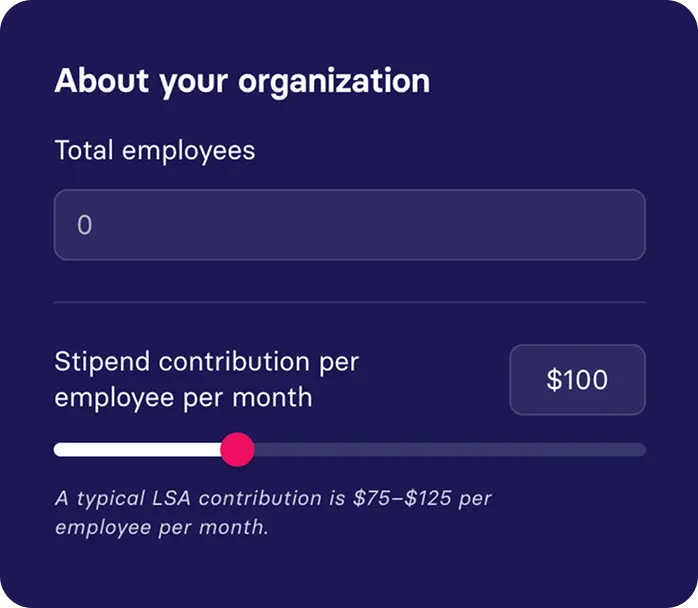In this post
Lorem ipsum dolor sit amet
Lorem ipsum dolor sit amet
HSAs (health savings accounts) are a great way to save money for future medical expenses and lower your tax obligations.
What does HSA stand for? How can an HSA help me save on health-related costs? And how do I know I’m eligible? Whether you’re an individual looking to get started with an HSA, or an employer interested in more information, here’s what you need to know:
What is an HSA?
An HSA — or health savings account — is a tax-advantaged benefits account that works kind of like a personal savings account, if your savings account had restrictions for eligible purchases. Money from an HSA can be spent on a wide range of eligible costs, from doctor’s visits to new glasses to flu shots. Unlike FSAs, HSAs are not owned by your employer. Instead, employees own and control the money in their account, although some employers will still contribute to the account on your behalf and administer the HSA.
In order to be eligible for an HSA, you must meet the following criteria:
1) Under the age of 65
2) Enrolled in a high-deductible health insurance plan
It’s important to note that additional specialized insurance plans (like dental or vision) won’t get in the way of obtaining an HSA, so long as your general health insurance has a high deductible. The downside of having a high deductible plan is that you’re paying more out of pocket, but the upside is that monthly premiums are generally lower, and the ability to enroll in an HSA certainly has its advantages.
For 2022, the coverage limit for an individual is $3,650, and $7,300 for family coverage. This includes any money your employer contributes, so be sure to budget wisely when you’re considering your healthcare expenses for the year to come.
How can an HSA help your employees?
One of the great things about HSAs is that like FSAs, they’re tax-advantaged. In other words, the money that employees deposit into the account is not taxed, either on its way into the account or on the interest that the account accrues. That means if you budget right, you could be looking at significant savings over time.
Another great quality of an HSA is that it is not tied to your employment status. If you are planning on switching jobs, or even just health plans — your HSA will come right along with you. Any money that is unused at the end of the year will roll over into the next, meaning that any money you put in is yours to keep, even if you overestimate your budget.
Is an HSA right for all your employees?
An HSA isn’t the best choice for everyone. Since having a high-deductible health plan is a requirement, it’s first essential to calculate whether having a high deductible plan makes sense for you.
For instance, let’s say by switching to a high-deductible plan you save $250 a month compared to your current plan. While you save $3,000 a year in insurance costs, will that cost savings be greater than the increase in your deductible? Switching might look like a good financial decision during a period where you have predictable fixed expenses, but during a period where you have a medical emergency it could cost you more. Employees must crunch the numbers to determine whether the lower monthly cost balances out the risk of a high deductible plan.
Properly educating your team on when it makes sense to enroll in an HSA can help employees improve their financial health.
If you have any more questions about how HSAs can benefit your employees, please don’t hesitate to reach out at sales@getbenepass.com.




